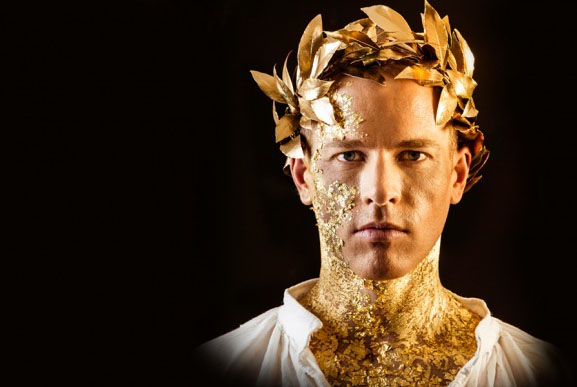
The plot of Handel’s ‘Egyptian’ opera in some way resembles the composer’s Scipione with its mix of Roman imperial power and love tangles of the intractable kind. But where the eponymous Scipione does the right thing and gives up the captive Berenice, Cesare ends up getting the girl. Or should we see it as the other way around? For Cleopatra uses all her guile and sexual charm to ensnare the leader of the Roman world, initially to get one up on her brother, Tolomeo, in the bitter family squabble over who rules Egypt, but subsequently because she has fallen in love with him.
Tolomeo is a thoroughly bad lot, a kind of proto-Caligula, although, it has to be said, probably not so shocking for his time. Brother and sister, in keeping with Egyptian custom, were actually married, a fact to which the production fleetingly refers with a bit of fumbling. Although Cesare has his name above the lights it is Cleopatra who is the moving force in the opera. Soraya Mafi as the scheming sister/lover/queen commands whenever she takes the stage. Coquettish, seductive and Machiavellian in turns she has a voice which matches each occasion; light where required, but with a reservoir of strength without losing any colour when needed.
The full title of the opera is Giulio Cesare in Egitto and I found myself wondering what it was about the opera’s original production that made it so successful when it saw the light of day at the King’s in Haymarket (1724). When we consider that both Cesare and Cleopatra were originally played by castratos, part of the answer may lie in a glow of exoticism suffusing the setting and in particular the eroticism of Cleopatra’s seduction of Caesar. The ETO goes in for ‘tasteful’ in this respect with the most famous beauty in the ancient world revealing herself to Caesar looking like a Russian icon, complete with halo and standing in a golden niche. It is a beautiful and memorable image, if not ‘top shelf’ stuff, which certainly does the business on Cesare.
Cornelia and Sesto are difficult parts in that there is little in the way of emotional arc to the roles, which form the sub-plot to the love story. Sesto, Hamlet-like, spends most of the time saying what he wants and ought to do without doing it whilst Cornelia spends a lot of time clutching her dead husband Pompey’s ashes and contemplating suicide. She does get to sing some beautiful arias of lament from which Catherine Carby extracts the full emotional value. Both get their revenge in the end with the deaths of Tolomeo, and Achilla, his general – who was responsible for the decapitation of Pompey. Stepping into the breach left by an indisposed Kitty Whately was Mezzo-Soprano, Rosanna Cooper, as Pompey’s son, Sesto. She seemed to get the hang of the dithering youth right off, catching with a rich sound the bluster and disappointment of the character.
This is an opera that demands impeccable technique of its singers and the ETO doesn’t disappoint. The bright sound required by Handel and provided by the castratos does present a problem for a modern production with the dearth of such curiosities in these straightened times. Various productions have found solutions with mezzos playing Tolomeo and Cesare, Janet Baker being a notable example of the latter. More usual is to cast counter tenors in these roles as in this production with Benjamin Williamson and Christopher Ainslie taking on Tolomeo and Cesare respectively. Mr Williamson with his gawky, juvenile swagger finds not only the menace of the character, but with some deft directing from James Conway, no small amount of humour. Mr Ainslie meanwhile is able to bring some weight to his counter tenor role, which allows us to suppose some martial characteristics of the character. Again his aria to the Zephyrs in act three in which he wonders where his empire has gone (delivered stripped to the waist) is both nuanced and sensitive.
Benjamin Bevan as decapitator-in-chief, Achilla makes the move from demonic to doleful and even manages to arouse some sympathy in his forlorn love of Cornelia. His fine bass brings a little earthiness to the otherwise uniformly bright sound of the higher register voices.
The playing from The Old Street Band under Jonathan Peter Kenny is crisp throughout with all the colours of the orchestration brought out in vivid relief. The prancing rhythms of Handel weave through the opera with a perfect balance between musicians and singers.
There is a certain novelty to baroque opera, but this company shows that it is no less an adornment to the repertoire which opera lovers will not want to miss. The ETO are no less an embellishment to the cultural life of the nation, bringing top quality yet manageable opera to the parts other companies are unable to reach. ★★★★☆ Graham Wyles 1st November 2017

